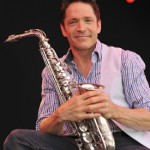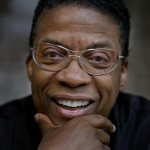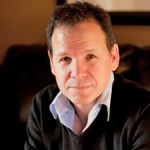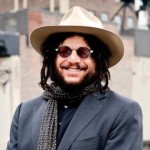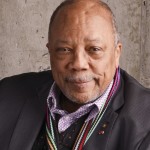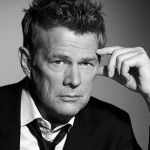In the opening line of the song Africa by Toto, David Paich sings: “I hear the drums echoing tonight…”
Those drums are still echoing loud and clear on this month’s 30th anniversary of Africa reaching #1 on the Billboard Hot 100. The 1983 worldwide hit was written by Toto keyboardist David Paich, along with drummer Jeff Porcaro, who died tragically in 1992.
Toto remains one of the top-selling tour acts in the world, with over 30 million records sold. Their upcoming European tour kicks off this May in Brussels, where they’ll be performing hits including Rosanna, Hold the Line, Pamela, I Won’t Hold You Back and, of course, the band’s most recognizable song, Africa.
To reflect on the 30th anniversary of Africa hitting #1 on Billboard, David Paich spoke exclusively with Rock Cellar Magazine about the origins of the song and its enduring mystique.

Rock Cellar Magazine: When Africa was written, the term “world music” hadn’t yet been coined, had it?
David Paich: No. When it came to describing genres of music, we’d come around from classical and jazz to country and rock and roll, but I think “world music” hadn’t been really a category yet. Africa was one of the entries into that genre, because it was the only way to describe that song, really. Here was a pop band that were taking influences that came from South Africa and Bali and different places like that. Looking back on it now, 30 years later, we may very well have been one of the forerunners of that so-called genre.
RCM: Africa seems very different than anything Toto had previously done, no?
DP: I’d say we were headed in the same direction, in the same spirit that Peter Gabriel is known for: combining Middle Eastern and Indian and South African music, to get his songs across. So, Toto IV was a very special record for us.
RCM: “I hear the drums echoing tonight.” What a fascinating lyric to begin a song – one that is played out rhythmically in the music. Intentional?
DP: In anticipation of this interview, I was just boning up on Africa by reading some background stuff from my drummer Jeff Porcaro, and I found out some things that even I didn’t know! Like when he was 11 he went to the New York World’s Fair and visited the African pavilion and saw these drummers playing. And it was kind of mind-blowing for him.
When I asked Jeff to co-write Africa with me, I said I wanted the basis for it to be this percussion drum-loop kind of a thing. And now I realize how Jeff would have been influenced by the African drumming he saw as a kid. Also, it was the first time there was a drum-loop in a song; after the Beatles probably. Africa was created with Jeff Porcaro, Lenny Castro and myself set up in a studio, and we cut it with Al Schmitt, the famous Grammy Award-winning engineer.
RCM: What was the lyrical inspiration behind writing the song Africa?
DP: We had all of our songs for the Toto IV record, pretty much, with Rosanna and I Won’t Hold Back, which later became the big singles. So we thought, well, now we can do something a little more experimental – whatever we want to do. I came up with that song based on some ideas I had when I was a kid.
I had always watched these Unicef commercials on TV and they affected me very emotionally. These images of young children starving – sick, diseased, homeless – and the hunger issues that plagued South Africa really moved me.

Starving Biafran Children; 1969
RCM: What is meant by “I bless the rains down in Africa?”
DP: When I got older and was going to an all-boys Catholic prep school, there were a lot of brothers who had done missionary work over in Africa. And when they came back, we’d all go out to the football field, and people would hold up books and various things for the priest – who had also come back from Africa – so he could bless them.
So I asked him, “What kinds of things did you bless over in Africa?” And he said, “We blessed the crops, we blessed the people and the villages, and we blessed the rains.” And that was the first time I’d heard of someone who had “blessed the rains.” The rest of the song was just a story I put together from bits and pieces I collected here and there, from reading books and National Geographic articles, and seeing pictures of Africa. It all had a major influence on me.
I prefer, though, to let the listener interpret the song, how they want to interpret it, because trying to define it would put limitations on it, I think.
RCM: Oddly, that song was almost cut from Toto IV, correct?
DP: There definitely was a negative reaction at first. A knee-jerk effect – both from band members, and certain other people who said things like, “This isn’t really what the youth and teenage girls are into, or your Toto audience. This isn’t anything like the pop music that’s on the charts,” and things like this.
Then I talked to another person who I respected a lot, this other girl who had been a college graduate and she said to me, “You mustn’t write down to your audience. You have to imagine that your audience is as intelligent as you, and that they go to school, and that they will understand the kinds of things you’re writing about.”
RCM: Are you speaking of lyrics like “As sure as Kilimanjaro rises like Olympus above the Serengeti…?”
DP: Yes, exactly, that line particularly! After speaking with that girl, it kept me from slashing all those lines like the one you mentioned – those that were so heavily under the scrutinization of the lyrical microscope in our band. I left all that stuff in, and to this day I still think that’s a good thing to do: to not write down to your audience.

David Paich & Steve Lukather of Toto; photo by Andreas Nilsen
RCM: Your guitarist Steve Lukather recently told Rock Cellar Magazine that, before Toto IV was released, he said to the band: “If Africa becomes a hit, I’ll run naked down the streets of Hollywood Boulevard.”
DP: I’m going to have to remind him of that! (laughs)
RCM: When you wrote the song, you hadn’t yet even been to Africa, right?
DP: Oh yeah. In fact, one of the biggest compliments I ever got were from people who had been to Kilimanjaro in South Africa, who came up to me and asked me when I had been there; that I had described it so beautifully. When I said I had never been there, they couldn’t believe it. (laughs) Through pictures, though, I think I was able to really see and get a feel for the majestic beauty of place like Kilimanjaro.

Mt Kilimanjaro; photo: Kevin Smith
RCM: The music video for Africa was a huge hit on MTV. What was that like, given that Toto really wasn’t an image-based band?
DP: No, we certainly were not; our goal was not to be celebrities, but rather just be musicians with a desire to get our music out to the world. But this was just another way to get our music out there at the time, and MTV was brand new. I remember hearing things like, “What do you mean a music channel? Why would there be music from the radio on TV?” So we were on the ground floor of that.
For that video, though, we just flew in for a day and the director had an idea for the song. When I watch it today I think, “what were we trying to do there?!” (laughs) One of the first things we shot was this part of the video through a piece of painted glass, and it had had all these books on it and in the video, it looks like we’re standing and sitting playing our instruments on giant books. Again, this was the first time that had been done. Of course today they’d use computerized books for that.
RCM: In the video – along with the congas, shakers, a gong, there’s that big digital synthesizer…
DP: Ah yes, the GS-1 Yamaha, which was a brand-new instrument and it had some very special sounds on it. Coincidently, Yamaha is celebrating their 125th anniversary and Toto will be there, playing the song Africa.

One of the special sounds on the GS-1 is the kalimba-like intro, you hear on the song. When I first wrote the song, I had written it on piano and then transferred it over to the GS-1. And when I started playing it, at first I was singing the melody of the verses, and it sounded to me like something somebody might write for the band Chicago, because it had all these changes in it. They were friends of ours, and I remember thinking, wow – this might be a great song for Chicago to do.
But then, when I got to the chorus – and I’m kidding you not – I just started playing the chords of the chorus, and the words and the melody just came out pretty much 95% as you’re hearing them on the record.
RCM: It came to you just like that?
DP: It really did.
I just stopped at the end of the chorus and went, man, I just had a musical epiphany! Thank you God for using me as a vehicle, again, for one of these songs here.
DP (cont.): Then, as a result of it – just as a lot of my songs do – it took me six months to write the rest of the lyrics and the verses! (laughs) Usually I get the chorus and the music comes very fast, but to write good lyrics has always been an uphill “Everest” climbing struggle for me.
RCM: The lyrics are poetic and vivid, with lines like, “She’s coming in 12:30 flight, the moonlit wings reflect the stars that guide me towards salvation…”
DP: I spent a lot of time researching them, trying to find just the right phrasing and the right words that sounded right when I sang them. It was important that they had meaning and poetry to them, and yet would still convey this feeling of Africa, hoping the words would create images for people listening.

Toto circa 1982: Bobby Kimball, Steve Porcaro, David Hungate, David Paich, Steve Lukather & Jeff Porcaro
RCM: You sing lead vocals on Africa, yet you weren’t one of the band’s main singers, right? How was that.
DP: I wasn’t comfortable with at all, and I’ll tell you why: Usually when I sang on a record with our band – we had Bobby Kimball and Steve Lukather as our singers – it was usually because we had already gone and had the main singers try to sing the songs first. If I ended up singing on something, it was because something was throwing them for a loop. And Africa had so many words to spit out! I mean, Bobby tried it, then Lukather tried it, but it had what I call an “Elton John mouthful” of words: lots of words to get in, in a very short amount of time.
So I ended up singing it because I could spit out these words fast enough, and in that process, I ended up trying to find my own voice in recording that song. To this day, I’m still constantly searching for my own voice, and only now am I getting a little more confident in it. But at that time, I worked with engineer Tom Knox very closely for a very long time, working on my vocals and going through each line and making sure it sounded right for the song. It was a long, detailed process in getting those vocals right.
RCM: Talk a bit about the percussion: the snare and bass drums, hi hats, jingle sticks, sleigh bells, tambourines, cowbell…
DP: One of the greatest things about it is, and something I’ll never forget, is when Jeff Porcaro put this one loop together. In Africa they have these things called “walking sticks,” and Jeff had one fashioned after the ones a friend of ours’ named Emil Richards had. Emil does a lot of drums and percussion for the National Geographic shows that used to be on. So Emil showed Jeff how in Africa they would hand-make these walking sticks that had a bottle cap nailed to the tops and bottoms so they would “chang.”

Toto drummer, percussionist Jeff Porcaro
One of the sounds that you hear playing the 4-beat during the intro are these sticks Jeff made, with these Pepsi bottle caps on them (laughs). I don’t think many people even know about it. Jeff played a lot of the percussion overdubbed in one loop, then what we did is, we played to that loop and Jeff even played another drum part when it comes to the chorus. So what you’re hearing is the band playing, along with all these parts that were put in one at a time, very carefully. That’s what Peter Gabriel does now and has done for many years, which is carefully layering each part.
RCM: Lots of layers, as with the vocals…
FP: Right, we did that with the vocals as well. We brought in Tim Schmit from the Eagles, as he sang some of the high harmonies.
RCM: What have been some of your career highlights associated with Africa?
DP: Several years ago I was asked by a friend of mine to go and perform Africa at the United Nations, when they gave Bishop Desmond Tutu the lifetime achievement award. They had Paul Simon’s back-up band there as well. I played and sang Africa for all these representatives of countries around the world, from places like Kenya, Cameroon, and Nigeria. There I was, looking out at all these people, ambassadors and presidents sitting right in front of me. That was a real honor and a highlight of my life.

RCM: Toto eventually performed the song in Africa, right?
DP: Yes, that was another dream of mine that came true, when we went over to Johannesburg and actually performed it on stage in South Africa. While we were there, we recruited half a dozen percussionists from the cities we were in – in Johannesburg and Cape Town – to come play with us. There was this group of 8 singers that sounded like 30 singers when they sang, and they opened for us. But they also sang on Africa when it came time to do our song, and they did this little intro, entirely in South African, while wearing the typical colors — blacks and beautiful yellows and reds. It was so uplifting, and one of the most magical moments I’ve ever experienced.

Toto Band: Current Lineup 2013; David Paich (far right)
RCM: What starts as a simple song taking on all this greater significance…
DP: That’s what I love about Toto and the song Africa. When I wrote the song on the piano, I never imagined just how much bigger and better it would become, and it surpassed anything I originally had in my head. The icing on the cake is when you see people singing along to it, in all parts of the world. It makes me think about something Sting once said, about how records are just the blueprints for what certain songs will eventually become, because when you perform a song like Africa in front of a crowd, it can take on a whole new life.
RCM: It sounds like the best part of being a musician for you is that connection to your audience?
DP: I sometimes think that certain songs are just floating around out there, and as artists we’re used as instruments, almost like we’re Wi-Fi connectors or something. The way music comes through people, possibly from a higher place, and the way we can share it with others is a magical thing. It’s amazing – the affect it can have on people, and the affect a song like Africa can have on me when I’m playing it. Through production and layering and rewriting of lyrics and melodies, combining all those elements into something called “music,” and the way it can become something bigger and higher than you ever imagined is absolutely fascinating to me.
RCM: How has Toto’s live version of Africa changed over the years?
DP: When we play Africa now, towards the end of the song, Nathan (East) — who has roots because his father was from South Africa – does this incredible chanting with the audience, and the crowd chants back. It’s something really special to see.

Steve Lukather & Nathan East; Toto
The great thing about playing Africa live is how Nathan’s improvisations can make it different every night, depending on the crowd, how they’re singing along to it and the environment in which we’re performing. And Steve Lukather‘s guitar playing is ridiculously good!
RCM: Steve Lukather is currently performing Africa as part of Ringo Starr & His All-Starr Band’s 2013 tour through New Zealand, Australia, and Japan this month.
DP: Right, and that’s another thing I can strike off my bucket list! (laughs) When I saw Ringo Starr last year at the Greek Theatre playing Africa, I just said, “Wow, there’s Ringo Starr and he’s playing my song!”
When you’ve been doing this for 35 years, you’d think we’d become complacent and apathetic, but I can’t tell you how excited I was when I heard Lukather was going on the road with Ringo and they’d be playing Africa, along with Hold the Line and Rosanna.
Just to look up and see Ringo playing drums on one of your songs is a feeling I can’t even explain. I mean, I’m still a huge Beatles fan, and when I see Ringo I still get frozen and want to ask him for his autograph.
When it comes to the Beatles, everybody gets humbled. They’re the reason everybody is doing rock and roll, I think. I’m still in awe of the Beatles like we were when we were kids. Something about them just makes you this eternal teenager, you know? I think this version of the All-Starr band is the best one Ringo’s ever had, and I’m just thrilled that some of Toto’s songs like Africa are being played to those audiences.
RCM: Africa was also introduced to new audiences through an episode of Family Guy, where a stripper dances to it. That must have been fun.
DP: It’s funny, because I’ve probably received more calls and more press over that than anything else! But the best part is, all of a sudden I was cool with my daughter’s friends! There was a whole new audience who only knew Africa from that show, so that really puts it all in the right light (laughs). I think of it as a perfect ending to a chapter, in the story of Africa.
And it just goes to show, just when you start taking things too seriously, and just when you get too worldly and full of yourself in thinking I’ve created this new spiritual awareness of the song… it becomes a lap dance anthem!
RCM: Africa has also been covered, remixed and sampled by countless artists from Igor Presnyakov to Jay-Z. Do you have any favorite versions?
DP: My favorite would be the one Karl Wolf [featuring Culture] did, along with Andy McKee a couple years back. It’s one of the best compliments and flattering things I can have happen, when another artist uses my songs and samples or re-does it in some way.
I actually just finished cutting a new version of Africa right now. There was a Latino group in the ’60s called El Chicano, they were kind of like Santana, and we just did a new samba kind of version of Africa with Siedah Garret singing on it. It’s yet to be released.
RCM: Are there any demos or unreleased outtakes from the original Africa recording sessions?
DP: It’s funny you should ask that, as we’re just now going through all our tapes that we’ve kept over the years, and we’re going through them and baking a lot of them to transfer to digital. Along with some video and other things, so you never know, there may be some gems or nuggets we find on Africa that will come up this year.
Another thing is, we shot a video when Toto did that concert in Johannesburg that I was telling you about, and we’re going to try to release parts of it, because this year is our 35th anniversary. It would be great to get some of that footage out to our audience, as that performance of Africa really represents the amazing journey that song has taken us on from day one.
RCM: Where do you think the song Africa will take you from here?
DP: I’m finding as I get older, as I’m in my 50s now, that I’m trying to spend a lot more time giving back to the community, as I’m doing things for the police department, the fire department, I’m working with the United Nations, and the Covenant House. And they all seem to get a lot of enjoyment from hearing the song Africa. So I see it as this gift that you can keep giving to people.
I sit in amazement and wonder where exactly that song really came from, as I just think it came from somebody creating up higher, as Africa is something so much larger than me and bigger than the sum of its parts. It’s like a magic trick, in a sense. I can’t put it any better than that.
Seeing people’s reactions to the song live in concert and seeing them sing along, is so much more fulfilling than ever seeing the song hit #1 on the charts, or the financial rewards that come with it. The song has transcended and outlived that. Africa, to me, is about that mystical thing that happens when people hear it, how it makes them feel, and the smile it puts on their faces.
~*~*~*~

Steve Lukather’s new album Transition is available in our Rock Cellar Store here.
For Toto CDs, vinyl and digital music click here.
Related Articles you will enjoy:
“Africa” by Toto Gets Resurrected Again by Jimmy Fallon and Justin Timberlake
– See more at: http://www.rockcellarmagazine.com/2013/02/04/africa-by-toto-lives-on-after-30-years/#sthash.zYBv4VZe.dpuf



